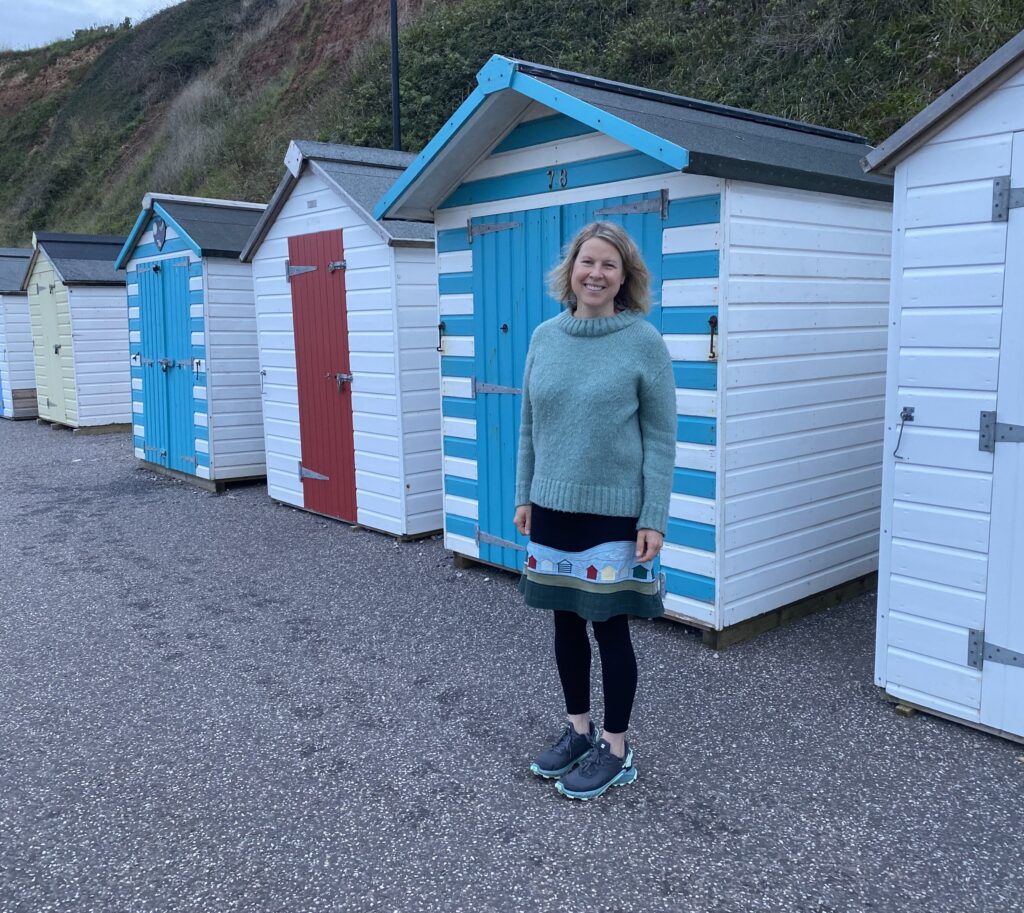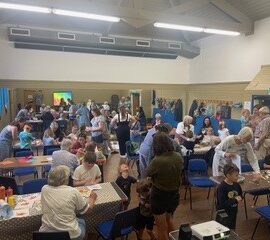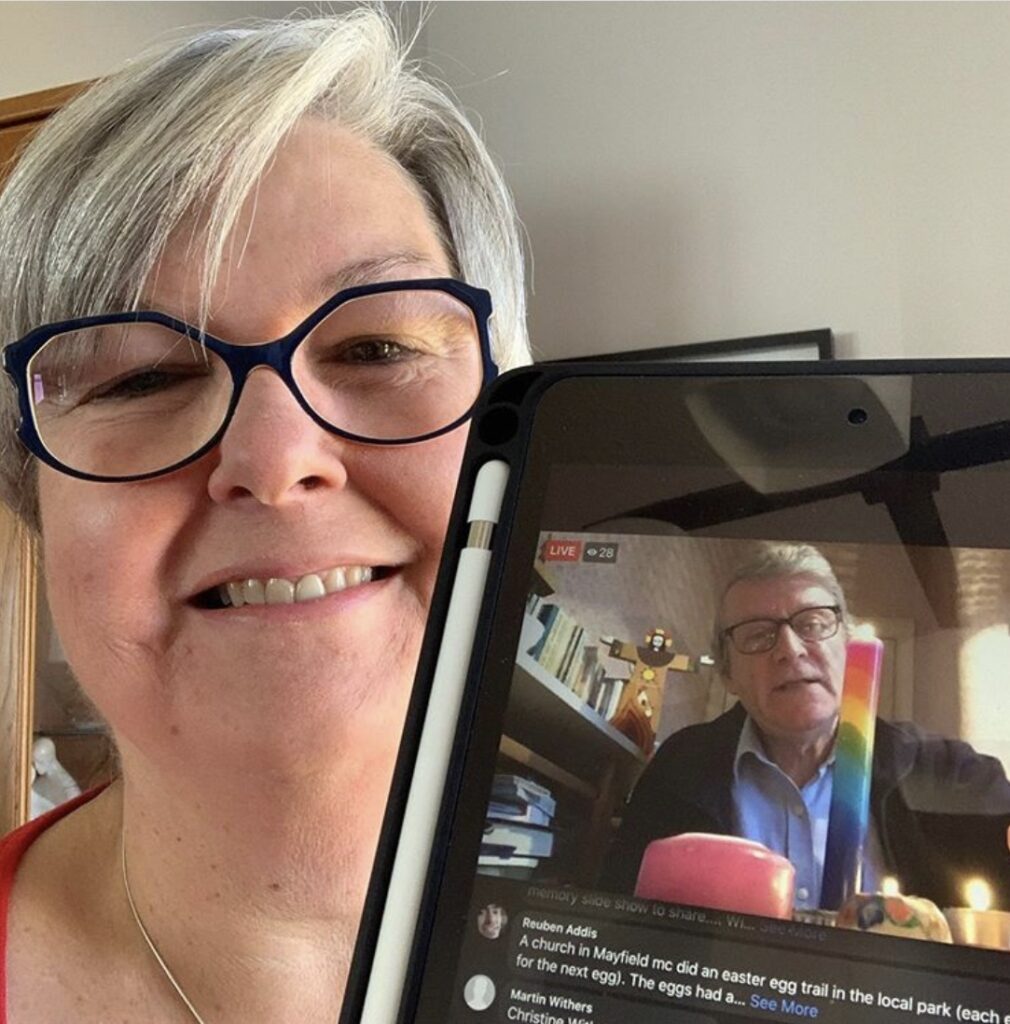How do we demonstrate all-togetherness when we are all-apart?
Summary of the Facebook Live with Martyn Payne, 6 May 2020
Messy Church is not a church that divides into age groups or interest groups; it’s not a church that is focused just on the adults or just on the children waiting to become adults; it’s a church that brings us all together. The word (is it a word?!) ‘all-togetherness’ rather than ‘all-age’ is a bit of a mouthful, but it reminds us that it’s not just about including the children. It’s church for all stages of faith, all experiences of life, all types of people, all abilities and for anyone, whether already church-friendly or not!
But how can we do this when our all-togetherness is taken away? Many of us feel this tension already in our own families – whether you are ‘grandchildren and grandparents’, ‘nephews, nieces with aunts and uncles’, ‘godparents and godchildren’ – we can’t be together, and it’s hard, and it hurts. How can we do Messy Church in these circumstances in a way that doesn’t give up on trying to express our all-together value? How do we find ways to live out this value when we’re having to organise Messy Church differently?
Here are some of the good ideas that you shared during the Facebook Live:
Maybe all-togetherness has to celebrated off-screen, in cards you send to your families to remind them you’re praying for them, letting them know they’re not forgotten; by emailing photos (where permissions has been given) of when you were together, commenting ‘do you remember that time when…’. And don’t forget ‘old-fashioned’ telephone calls – much less stressful than Zoom!
When thinking of activities to suggest/send out, check they need adults and children working playfully together and that they are attractive to all abilities.
When you give a shout-out for individuals from the screen, remember everyone’s birthdays, not just the children’s… and reference news/events that the adults can relate to.
Recognise that both children and adults are finding this time really difficult. Many families are already bombarded with screen stuff from school. Think how your together time for the family can be fun and not ‘yet another thing’ to do.
There will be some children fearful for their grandparents’ health. How do we build that sensitively into what we offer families through Messy Church?
Beware being too child-orientated in how you talk to your Messy Church viewers. Make your language inclusive. This is for everybody!
Maybe you can ask family groups to video themselves making a contribution to online Messy Church – singing a song, acting a story, taking the prayers. Whatever we try, think how it might help ‘drop-in family viewers’ (and there are many, research has shown) encounter a church that welcomes them as a family… that doesn’t split them up or talk to them in separate groups.
There are some slick presentations out there, but don’t be seduced into thinking yours has to be as slick or that your video editing or your storytelling has to have bells and whistles on. Be real… be messy… it’s in the name! Messy Church has always had this special flavour of being the sort of church we do together, not a church delivered to us or at us.
When we bring all our differences together, it opens up new possibilities and an exciting and, I believe, better way of being disciples of Jesus. God created variety, because he loves variety, not sameness. All-together church is countercultural for church, particularly for many Protestant churches in the west. Sadly this is rooted in an inherited low view of children and of all those who are not ‘on the same page’ as those who are in charge. When Paul wrote his letters, he was writing to a lockdown church in lots of places in the Roman Empire, and they were ‘at-home churches’, where everyone met together in extended family groups. Characteristically Paul uses imagery and also language that is for each of the groups there; he doesn’t just address the grown-ups. And Paul has that wonderful image of the body of Christ. We often use it only to describe the different gifts that we as individuals have, rather than perhaps seeing it as about each of us, who are the gifts; and who, like the parts of the body, bring our differences together to help us all grow up into Christian maturity. We need each other’s differences to be disciples of Jesus!
If you missed this day of Facebook Lives, you can find them here.
You may also like

Seaside Sojourn
21st Oct 2024It seems that I always get booked to deliver in-person training at seaside locations. This trend continued last weekend, as I headed off to the coastal village of Seaton, Devon.

Our Survey Said…
7th Oct 2024Back in February 2024, Church of England kindly sponsored a survey, completed by 330 Messy Church leaders. This is what we...

Storytelling from within God’s Story.
10th Sep 2024Hi Messy Friends! My name is Andrew McDonough. I live in Australia, draw sheep and tell stories. It began long long ago w...

Doing Things Differently in Different Places
6th Aug 2024When we hear these two words ‘Messy Church’, we may well have a picture in our minds of what we hope will happen and h...

